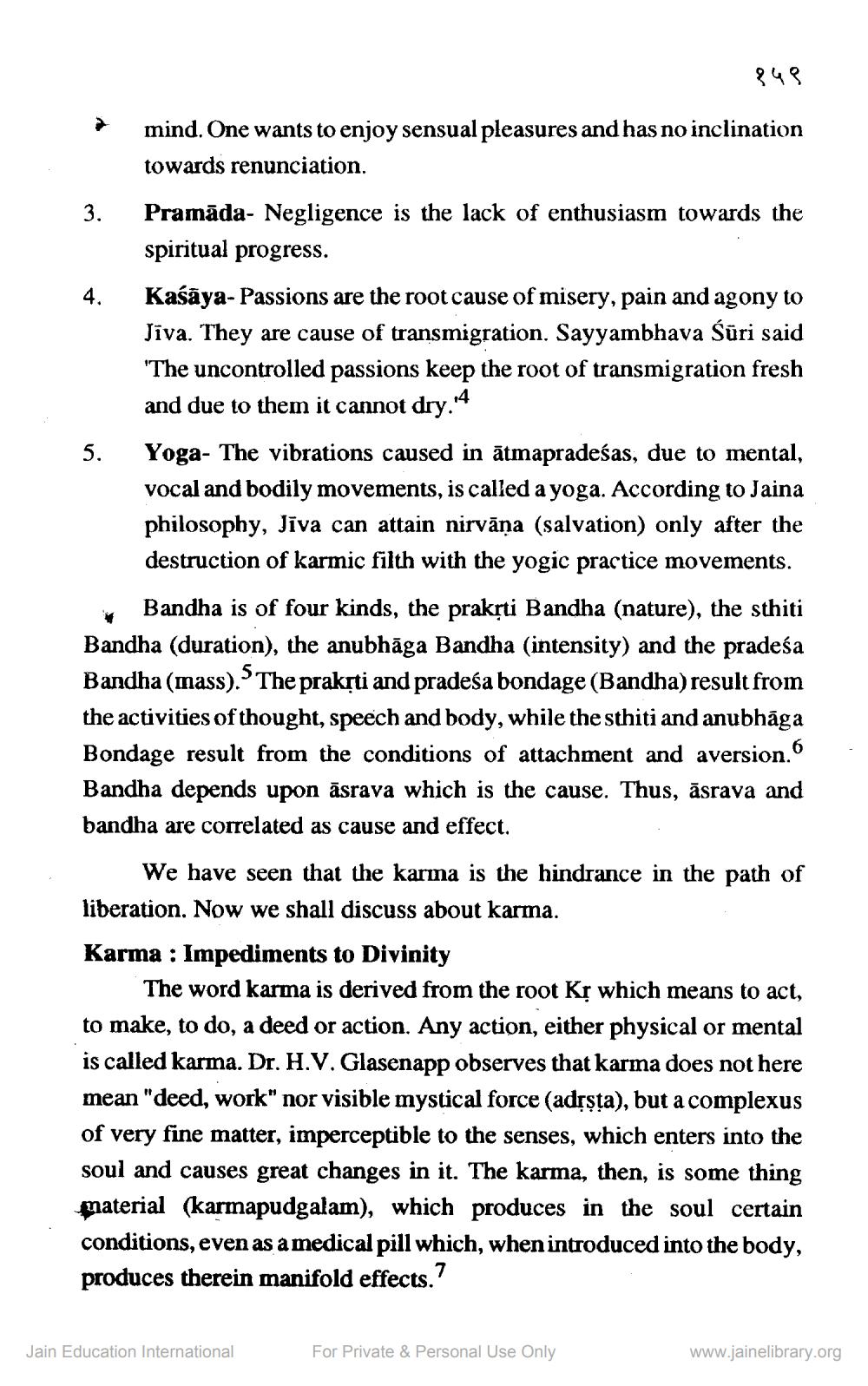________________
१५९
3.
mind. One wants to enjoy sensual pleasures and has no inclination towards renunciation. Pramāda- Negligence is the lack of enthusiasm towards the spiritual progress. Kaśāya-Passions are the root cause of misery, pain and agony to Jiva. They are cause of transmigration. Sayyambhava Śūri said 'The uncontrolled passions keep the root of transmigration fresh and due to them it cannot dry.4
5.
Yoga- The vibrations caused in ātmapradeśas, due to mental, vocal and bodily movements, is called a yoga. According to Jaina philosophy, Jīva can attain nirvāṇa (salvation) only after the destruction of karmic filth with the yogic practice movements.
Bandha is of four kinds, the prakrti Bandha (nature), the sthiti Bandha (duration), the anubhāga Bandha (intensity) and the pradeśa Bandha (mass). The praksti and pradeśa bondage (Bandha) result from the activities of thought, speech and body, while the sthiti and anubhāga Bondage result from the conditions of attachment and aversion. Bandha depends upon asrava which is the cause. Thus, āsrava and bandha are correlated as cause and effect.
We have seen that the karma is the hindrance in the path of liberation. Now we shall discuss about karma. Karma : Impediments to Divinity
The word karma is derived from the root Kļ which means to act, to make, to do, a deed or action. Any action, either physical or mental is called karma. Dr. H.V. Glasenapp observes that karma does not here mean "deed, work" nor visible mystical force (adrsta), but a complexus of very fine matter, imperceptible to the senses, which enters into the soul and causes great changes in it. The karma, then, is some thing material (karmapudgalam), which produces in the soul certain conditions, even as a medical pill which, when introduced into the body, produces therein manifold effects.'
Jain Education International
For Private & Personal Use Only
www.jainelibrary.org




